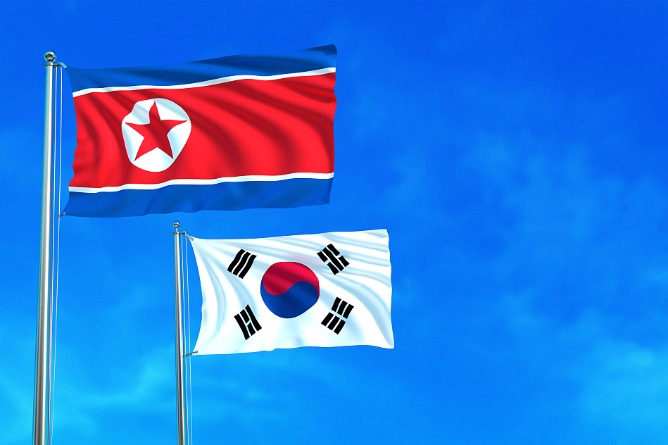Road map needed for solving Korean Peninsula issue
By Wang Junsheng | China Daily Global | Updated: 2023-11-28 09:15

China has always attached importance to peace on the Korean Peninsula. Unfortunately, the development of the current situation is far away from that.
The Democratic People's Republic of Korea announced its success in putting a reconnaissance satellite in orbit on Nov 21. The next day, the Republic of Korea decided to partially suspend the military agreement with the DPRK that was reached in 2018 following the inter-Korean summit in Pyongyang.
The DPRK's launch of a ballistic missile toward the sea likely failed on Wednesday night, hours after Seoul said it would resume frontline aerial surveillance.
The relationship between the ROK and the DPRK is becoming more tense. At present, the two sides have cut off all channels of communication, making it impossible to even engage in basic dialogue.
Not only has the DPRK conducted frequent missile tests, but joint military exercises between the United States and the ROK have become more frequent.
While the ROK and the US are strengthening their alliance, China-ROK relations have fallen to their lowest ebb since they established diplomatic relations in 1992. All kinds of strategic dialogues between China and the ROK have been suspended, and the special envoys in charge of the Korean Peninsula affairs for the two countries have only communicated by telephone twice since the government of President Yoon Suk-yeol took office.
In order to realize peace and stability on the peninsula, all parties should work in the following direction.
First, inter-Korean dialogue needs to resume as soon as possible. To this end, humanitarian exchanges should be resumed, such as the reunion of separated families.
Second, all parties should work together to reduce military confrontation. To this end, the DPRK should stop its frequent missile tests as soon as possible, and the military exercises of the US and the ROK should also be stopped.
Third, China-ROK relations should be put back on the right track as soon as possible. To this end, China and the ROK should respect each other's core interests, especially by not interfering in each other's internal affairs, and by insisting on not targeting a third party when developing their relations with other countries.
As to China's role, there are three "unchanged" aspects.
First, China's position on the denuclearization of the peninsula remains unchanged. Although China has rarely mentioned the denuclearization of the Korean Peninsula officially since 2018, this position has not changed, because the denuclearization of the peninsula is in China's interest.
Second, China's position to strengthen communication and cooperation with the ROK and the US to resolve the Korean Peninsula issue has not changed. This year marks the 20th anniversary of the Six-Party Talks, which also involved Russia and Japan. Under the framework of the Six-Party Talks, China and the ROK have cooperated very closely. Today, China is still very clear that the related peninsula problems must be resolved through cooperation with the US and the ROK.
Third, China still hopes to maintain the traditional friendship between China and the ROK. But the last thing that China wants to see is the trend of camp confrontation and another Cold War, which was also one of the main driving forces for the establishment of diplomatic relations between China and the ROK in 1992.
In other words, the ROK should also take China's concerns into consideration.
First, what China is most concerned about is that US-ROK military cooperation must not affect China's core security interests and must not interfere in China's resolution of the Taiwan question.
Second, China and the ROK should strengthen communication on resolving the Korean Peninsula issue. The two countries' special envoys in charge of Korean Peninsula affairs should strengthen their communication, and the ROK should not try to marginalize China's role.
Third, the think tanks of the two countries should work together, in particular on drawing up a road map of how to resolve the Korean Peninsula issue, and later encourage the two governments and those of other relevant countries to participate in turning it into a blueprint.
Ideas matter, and the denuclearization of the Korean Peninsula requires a common idea and plan.
The author is a researcher at the Chinese Academy of Social Sciences' National Institute of International Strategy. The views do not necessarily reflect those of China Daily.
























